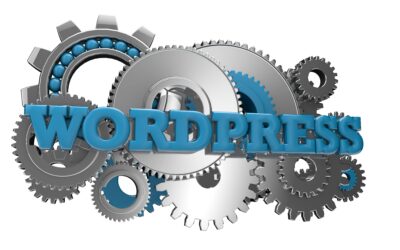All the search engines including Google follow links. Google goes to one page to another to follow the links. Some time ago it was possible to submit the website directly to the search engines but now a days it is not possible to do that. Crawlers go around the internet 24/7. Their work is to follow all the links all over the web, crawl the high-quality links, and help the search engine to index them.
The crawler follows the links. When a crawler finds a website, it starts reading it and then saves its content to index. The index is the part of Google’s database in which all the information about the content of different sites is saved. When we search for a query an algorithm decides which web page to show in search results and which not to show.
Crawlers, spider, and bots
A crawler is also known as a spider, bot or robot. Crawler goes around the internet 24/7. Its responsibility is to go around the internet and follow the links on the web. Once it involves a website, it saves the HTML version of the page in Google’s gigantic database which we call the index. Every time the crawler goes to your site and finds a new or revised version of it, it updates the index.
What is SEO crawlability?
Crawlability is the measure of possibilities that Google has to crawl your site. There are many reasons that can block the crawlers and do not allow you to come to your site. In this situation, you would not be able to appear in the search results.
There are certain things that can make difficult for crawlers to index your website:
- When the crawler comes to your site, firstly it checks the HTTP header, which contains a status code. If this status code says the page does exist, then Google will not crawl your site.
- Robot.txt file is also very important. It gives instructions to crawlers about the links in the form of follow or not. So Google comes and crawls the pages according to these instructions.
- In case if the robot meta tags on a certain page block the search engine to index the website, then Google will crawl your site but will not index it.
What is the website Crawl Budget?
The number of pages Google crawls on your site on any given day is known as a crawl budget. The number of pages may change day to day but normally it’s relatively stable. The crawl budget is determined by the number of pages of your site, health, and the number of links to your site.
It is not like Google crawls every page of your site quickly. It takes time for crawling, sometimes it takes days and weeks to crawl the page. It becomes an obstacle in the way of your SEO strategies. It can happen to you that your newly optimized landing page may not get indexed immediately. At that time you should optimize your crawl budget.
It might crawl 6 pages a day, it might crawl 5,000 pages, it might even crawl 4,000,000 pages every single day. This depends on many factors. Some of these factors are things you can influence.
How does a crawler work?
The crawlers, spiders, or Google bots get a list of URLs to crawl on a site. It goes through your robot.txt file every time and looks for the URLs that are allowed to crawl and crawl them one by one. Once a spider has crawled a URL and it has parsed the contents, it adds new URLs it has found on that page that it has to crawl back on the to-do list.
When is crawl budget an issue?
Crawl budget is not a problem if Google has to crawl a lot of URLs on your site and it has allotted a lot of crawls. For instance, let’s consider you have 250,000 pages on your website. If Google crawls all 50,000 pages a day, then it is not an issue. But if Google crawls 2,500 a day on your site. It will crawl some more than others. Then it could take up to 200 days before Google identifies specific changes to your page if you do not act. Now, the crawl budget is an issue.
To identify if your site has crawl issues or not, follow the steps given below:
- Make sure you know how many URLs you have on your site. Add all of them to your XML sitemaps.
- Open the Google search console.
- Open the option crawl – Crawl stats and take note of the average pages crawled per day.
- Divide the number of pages by the “Average crawled per day” number.
- If your “Average crawled per day” number is greater than 10, you should optimize your crawl budget.
What URLs is Google crawling?
It is significant to know what URLs Google is crawling on your site. You can know this by looking at your server logs. If you have a large website then you can use Logstash and Kibana. If your website is small then you should use a little tool called SEO Log File Analyzer.
Get your server logs and look at them
Sometimes it is not possible to get the servers logs because of hosts. Some hosts do not give permission for this. But if your site is large and you require crawl budget optimization then should get server logs. If your host is one of those who do not allow for this, then you should change your host.
Your site’s crawl budget is not the thing that you can fix from outside. You need to go deep with it in order to optimize it. You will see a lot of 404 pages that you will think are useless. You have to fix them. You have to make sure that your site does not get so much of a burden of these 404 pages.
Increase your crawl budget
Let us look at the factors that help to increase the crawl budget of your site:
-
Website maintenance: reduce errors
Make sure that the pages that are already crawled should return on or two possible return codes : 200 for ‘ok’ and ‘Go here instead’. Again to fix these issues you need to have access to the site’s server logs. Google Analytics can also help to track the pages that serve a 200.
With the help of server logs and Google analytics try to find the common errors and fix them. You can identify all the URLs that do not return 200 or 301. Then you need to fix the code. Or you also have another option of redirecting the URL to other pages.
-
Block non-useful parts of your site
If your site contains the sections that are not useful for you and should not be on Google then you should remove them from robot.txt. But do so only if you are sure about those pages that you do not need them anymore.
-
Reduce direct chains
When you 301 redirect a URL, something weird happens. Google will see that new URL and add that URL to the to-do list. It doesn’t always follow it immediately, it adds it to its to-do list and just goes on. When you chain redirects, for instance, when you redirect non-www to www, then http to https, you have two redirects everywhere, so everything takes longer to crawl.
-
Get more links
This task is very difficult to perform for SEO. It is not only about getting good quality links, it also matters that others also consider that you have a good quality site. You should have good PR and good engagement on social media.
SEO Content That Provides Value & Insight
Content provides value and unique insights It is very helpful to provide unique and valuable content to your audience. Unique content is straightforward enough, but what this unique content actually means? What is required to make this unique content? Let's discuss...
What are WordPress tags for SEO?
WordPress tags and categories play a vital role in organizing your site’s posts properly. They can help you to increase the web traffic, boost your page views, and offer a great experience to your potential customers. With the proper use of tags and categories, you...
HTML Errors/ W3C Validations
Lots of HTML errors or sloppy coding may be a sign of a poor quality site. While controversial, many in SEO think that a well-coded page is used as a quality signal. 6 reasons why Google advice to validate your html Valid HTML and crawl rate: In Google search console...




